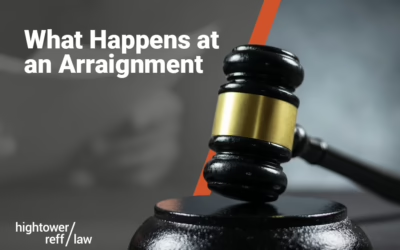When facing a felony warrant, knowing your rights and options can empower you to make informed choices. As a Nebraska criminal defense attorney, I’ve helped clients navigate the uncertainty and fear surrounding outstanding warrants. Here’s what you need to know.
What Is a Felony Warrant?
A felony warrant is a legal document issued by a judge authorizing law enforcement to arrest an individual accused of a felony-level crime. Felony warrants do not expire. They remain active until served or recalled by the court. There are two common types of felony warrants:
- Felony Bench Warrant: Typically issued when someone fails to appear in court.
- Out-of-State Warrant: Issued in one state and valid for arrest in another, depending on extradition laws.
Each warrant must include:
- The name of the individual
- A description of the alleged offense
- The jurisdiction
- A judge’s signature and issuance date
Judges issue felony warrants upon probable cause, often following an investigation or failure to appear in court.
What Is a Felony Offense?
Felonies are serious crimes with sentences exceeding one year in prison. Examples include:
- Drug trafficking
- Burglary
- Assault with a deadly weapon
- Homicide
- White collar crimes such as embezzlement
Should I Turn Myself in for a Felony Warrant?
You should turn yourself in for a felony warrant when you find out about it, after hiring a criminal defense attorney. Turning yourself in can demonstrate responsibility and may positively influence your case, especially if coordinated with legal counsel. It’s not an admission of guilt, but a strategic move.
There’s no universal deadline for turning yourself in, but waiting increases your risk of a public arrest, which can be traumatic and damaging.
The best time to turn yourself in is during weekday business hours—early morning—when courts and jails are staffed. Always consult an experienced criminal defense lawyer beforehand. They can arrange a safe surrender, negotiate bail, and prepare your defense.
What Happens When You Turn Yourself in for a Felony Warrant?
When you turn yourself in for a felony warrant, you’ll be taken into police custody, and they’ll read you your rights. In most felony cases, you will go to jail when you surrender. Here’s what typically happens after turning yourself in:
- Booking: Your fingerprints and photo are taken, and your information is processed.
- Initial Detention: You may be held until your court appearance—sometimes hours, sometimes days.
- Arraignment: You’ll hear your charges and may enter a plea.
- Bail: The judge may set bail. If posted, you can await trial at home.
- Pretrial Process: Your lawyer will begin preparing your defense immediately.
This article should not be construed as legal advice. Situations are different and it’s impossible to provide legal advice for every situation without knowing the individual facts.
Turning yourself in with a lawyer by your side isn’t just smart—it’s your first step toward a more manageable legal path. If you need a criminal defense attorney for felony charges, contact Hightower Reff Law today to consult with a member of our dedicated team.




